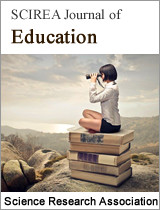Research on Philosophical Theories Related to Moral Paradox and the Path of Solving the Tram Problem
DOI: 10.54647/education720108 43 Downloads 14002 Views
Author(s)
Abstract
Moral paradox is a special contradiction in the world of moral phenomena, which is a result that appears in behavioral choices and has an absolute opposition and antagonistic nature between good and evil. The manifestation of the opposition between good and evil in the process of appropriate implementation of behavior choices. This article explores some philosophical theories related to moral paradoxes, excavates some philosophical theories related to moral paradoxes, reviews the case of the trolley problem, conducts research on the solution path of moral paradoxes, and applies theoretical results to practice. It can not only clarify the development process of moral paradoxes, but also reveal the essence and laws of their development, effectively improving people's moral literacy.
Keywords
moral paradox; philosophical theory; trolley problem; resolving contradiction path
Cite this paper
Weikang Zhu,
Research on Philosophical Theories Related to Moral Paradox and the Path of Solving the Tram Problem
, SCIREA Journal of Education.
Volume 10, Issue 2, April 2025 | PP. 41-51.
10.54647/education720108
References
| [ 1 ] | He Bin, Zhang Haiyan Difficulty in Distinguishing Reasonable Egoism [J] Journal of Yanbian University (Social Sciences Edition), 2007 (03): 28-33 |
| [ 2 ] | Yang Jingjing Epicurus' hedonism and contemporary value Journal of Daqing Normal University, 2017, 37 (05): 19-22 |
| [ 3 ] | Xiao Fengliang The Modern Revival of Utilitarianism: A Review of Behavioral Utilitarianism and Normative Utilitarianism [J] Journal of Hunan University of Science and Technology, 2013, 34 (06): 72-75 |
| [ 4 ] | Bentham Government Film Theory [M] Shen Shuping, translated by others Beijing: Commercial Press, 1997 |
| [ 5 ] | Zhang Zhe Research on Mill's Revision and Improvement of Bentham's Utilitarian Ethical Thought [D] Heilongjiang University, 2023 |
| [ 6 ] | Chen Bo Moral Logic and Ethics Research [J] Journal of Renmin University of China, 1989. (6): 59-66 |
| [ 7 ] | John Rawls Theory of Justice [M] Translated by He Huaihong, He Baogang, and Liao Shenbai Beijing: China Social Sciences Press, 1988: 131-235 |
| [ 8 ] | Wang Xisheng The Path to Resolving Moral Paradoxes: Reflections from the Perspective of Logical Paradox Resolution [J] Journal of Anhui Normal University (Humanities and Social Sciences Edition), 2008 (03): 266-271 |
| [ 9 ] | Qian Guangrong Definition and Significance of Moral Paradox [J] Philosophical Trends, 2007 (07): 30-34 |
| [ 10 ] | Wang Xisheng The Value and Significance of Studying Moral Paradoxes [J] Morality and Civilization, 2008 (06): 15-18 |
| [ 11 ] | Berdyaev On the Mission of Man: The Experience of Paradoxical Ethics [M]. Shanghai: Xuelin Publishing House, 2000 |
| [ 12 ] | McClellan. Philosophy of Education [M]. Beijing: Sanlian Bookstore, 1988 |
| [ 13 ] | Sigismund Bauman Postmodern Ethics [M]. Nanjing: Jiangsu People's Publishing House, 2003 |
| [ 14 ] | Martin Cohen. 101 Paradoxes of Life [M]. Beijing: Xinhua Publishing House, 2007 |
| [ 15 ] | Roy Sorensen. A Brief History of Paradoxes: The Maze of Philosophy and Mind [M] Beijing: Peking University Press, 2007 |
| [ 16 ] | Chen Bo Paradox Research [M] Beijing: Peking University Press, April 2017 |
| [ 17 ] | Zhang Jianjun Introduction to the Study of Logical Paradoxes M Revised version Beijing People's Publishing House, 2014:7 |
| [ 18 ] | Sun Xianyuan Paradox and Moral Paradox [J] Journal of Anhui Normal University (Humanities and Social Sciences Edition), 2010, 38 (05): 515-521 |
| [ 19 ] | R. Niebuhr Moral individuals and unethical societies [M] Guiyang: Guizhou People's Publishing House, 2007 |
| [ 20 ] | Huang Xiaoshan, Zhao Jinke Comparative Analysis of Hobbes' and Xunzi's Views on Human Nature [J] Journal of Xi'an University of Arts and Sciences (Social Sciences Edition), 2016,19 (06): 121-1 |

